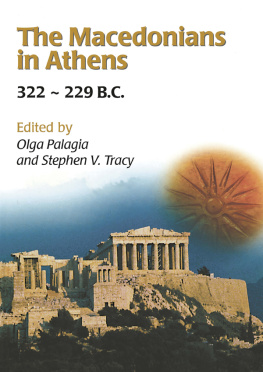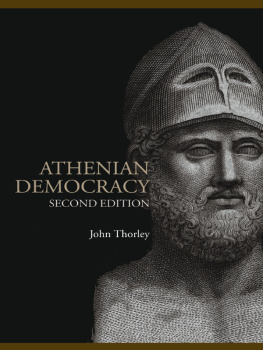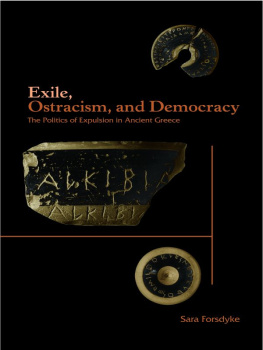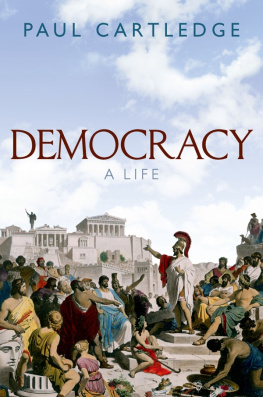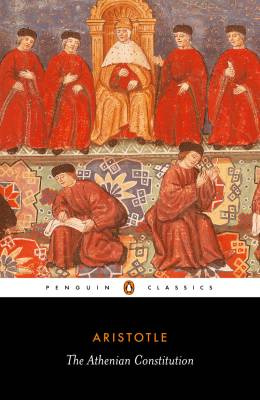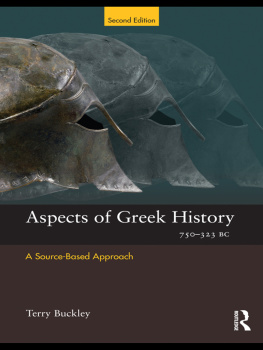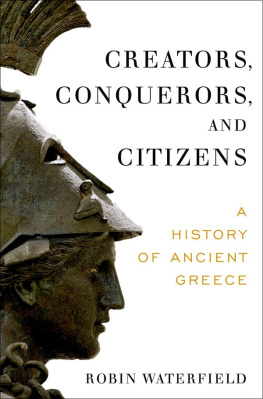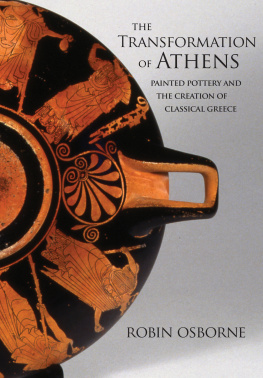Thomas N. Mitchell - Democracys Beginning: The Athenian Story
Here you can read online Thomas N. Mitchell - Democracys Beginning: The Athenian Story full text of the book (entire story) in english for free. Download pdf and epub, get meaning, cover and reviews about this ebook. City: New Haven, year: 2015, publisher: Yale University Press, genre: History. Description of the work, (preface) as well as reviews are available. Best literature library LitArk.com created for fans of good reading and offers a wide selection of genres:
Romance novel
Science fiction
Adventure
Detective
Science
History
Home and family
Prose
Art
Politics
Computer
Non-fiction
Religion
Business
Children
Humor
Choose a favorite category and find really read worthwhile books. Enjoy immersion in the world of imagination, feel the emotions of the characters or learn something new for yourself, make an fascinating discovery.

- Book:Democracys Beginning: The Athenian Story
- Author:
- Publisher:Yale University Press
- Genre:
- Year:2015
- City:New Haven
- Rating:3 / 5
- Favourites:Add to favourites
- Your mark:
Democracys Beginning: The Athenian Story: summary, description and annotation
We offer to read an annotation, description, summary or preface (depends on what the author of the book "Democracys Beginning: The Athenian Story" wrote himself). If you haven't found the necessary information about the book — write in the comments, we will try to find it.
The first democracy, established in ancient Greece more than 2,500 years ago, has served as the foundation for every democratic system of government instituted down the centuries. In this lively history, author Thomas N. Mitchell tells the full and remarkable story of how a radical new political order was born out of the revolutionary movements that swept through the Greek world in the seventh and sixth centuries B.C., how it took firm hold and evolved over the next two hundred years, and how it was eventually undone by the invading Macedonian conquerors, a superior military power.
Mitchells history addresses the most crucial issues surrounding this first paradigm of democratic governance, including what initially inspired the political beliefs underpinning it, the ways the system succeeded and failed, how it enabled both an empire and a cultural revolution that transformed the world of arts and philosophy, and the nature of the Achilles heel that hastened the demise of Athenian democracy.
A clear, lively, and instructive account. [Mitchell] has mastered the latest scholarship in the field and put it to good use in interpreting the ancient sources and demonstrating its character and importance in shaping democratic thought and institutions throughout the millennia.Donald Kagan, author of The Peloponnesian War
[Mitchells] close scholarship shines in documenting the transition of Athens from financially and morally bankrupt oligarchy to emancipated democracy 2,500 years agowith a commendable attention to detail that beautifully captures the essence of ancient Greek culture and politics.Roslyn Fuller, Irish Times
Thomas N. Mitchell: author's other books
Who wrote Democracys Beginning: The Athenian Story? Find out the surname, the name of the author of the book and a list of all author's works by series.

